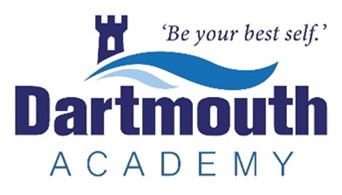English

English
Mr. Stirrup
Mrs. Tompson
In English at Dartmouth we believe every pupil should have full access to a broad, interesting, challenging and meaningful curriculum throughout KS3 and KS4, and that every young person has the potential to enjoy and succeed within the subject.
As stated in the National Curriculum:
‘A high-quality education in English will teach pupils to speak and write fluently so that they can communicate their ideas and emotions to others and through their reading and listening, others can communicate with them. Through reading in particular, pupils have a chance to develop culturally, emotionally, intellectually, socially and spiritually. Literature, especially, plays a key role in such development.’
We aim to ensure that all young people have the knowledge and skills to read, write, speak and listen to others with confidence and at a level that allows them to fully participate in society, our democracy, and the diversity of culture and creativity.
How do we work to achieve this?
- We teach pupils primarily in mixed-attainment groups throughout KS3 and KS4. In Year 7-8, groups are entirely mixed-attainment. Centrally planned and shared schemes of learning ensure that every pupil, in every group, has equal access to a challenging, interesting and well-structured curriculum.
- We provide additional support to pupils who struggle with reading, without removing them disproportionately from English lesson time. We believe access to high quality literary texts and universal themes that touch the lives of us all should not be limited by pupils’ current attainment in reading and writing. Every pupil has the right to the richness of the full curriculum. Additional support provided outside of English lessons takes place on a ‘rolling’ timetable (and in tutor time), so that pupils do not repeatedly miss the same subject lessons.
- High-quality literary texts sit at the heart of our curriculum, and we read for enjoyment and comprehension before deeper analysis, study and academic writing. Teachers model fluency when reading texts, and we use principles from Lemov’s ‘Reading Reconsidered’ to support pupils to read aloud in a structured and supportive way.
- The curriculum is sequenced so that pupils are supported in the transition between KS2 and KS3, so that they can make links from one area of learning to the next, and so that concepts are encountered multiple times from different angles and with increasing complexity and sophistication over time.
- We explicitly teach key vocabulary, with frequent repetition and low-stakes testing embedded within schemes of learning to support long-term learning for all pupils. This ensures that every pupil is taught the fundamental Tier 2 and Tier 3 vocabulary they need to know in order to access, discuss and write about the concepts within each unit.
- We provide clear models and scaffolding to ensure all pupils know ‘what a good one looks like’. We supplement this with exploration of non-examples, and use of the visualiser in the classroom to give live feedback relating to clear success criteria.
- We emphasise and teach ‘The Writer’s Craft’ to support pupils’ understanding that making meaning in text and speech requires thought, planning and redrafting: communication is a craft with knowledge and skills to be learnt and honed over time.
- We explicitly teach and frequently refer to the principles of ‘accountable talk’ in the classroom, helping pupils to develop their confidence and skill in speaking and listening by respecting principles of reasoning, knowledge and community accountability.
- We ensure pupils receive frequent, high-leverage feedback on their work, to move their learning forwards. This often takes the form of ‘whole class feedback’, whereby patterns of need are addressed in a targeted and practice-focused way by teachers, so that all pupils understand how to improve within the subject.
- We provide opportunities for pupils to explore the subject beyond the classroom, through extra-curricular activities such as Creative Writing Club, shadowing the Carnegie Medal Prize and UKLA Book Awards, theatre trips and workshops with authors.
